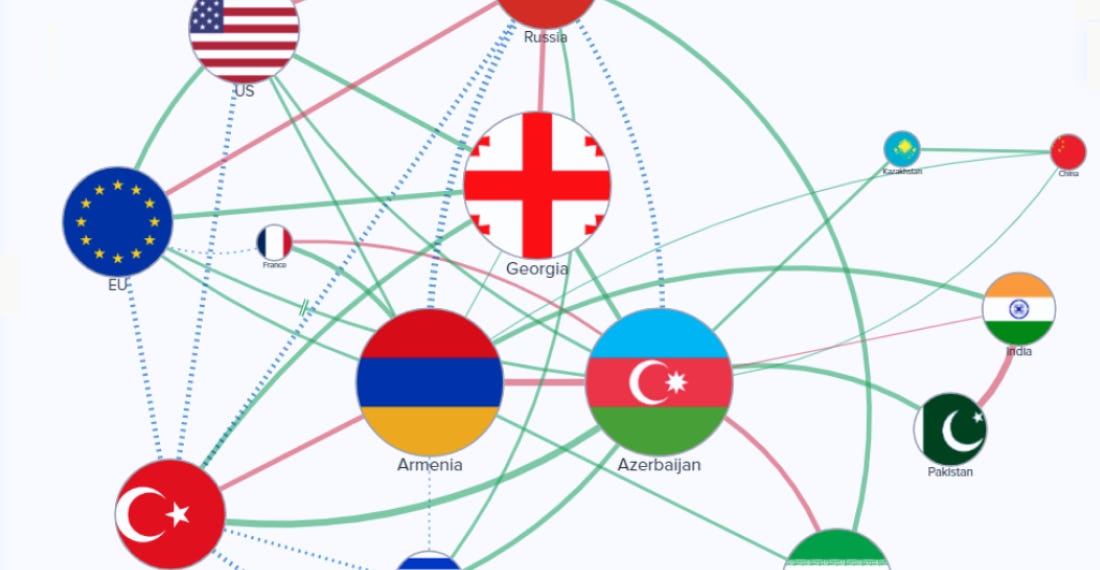CACI: Turkey & Syria, India & Pakistan in the South Caucasus, Trump Admin in Central Asia
Plus watch our webinar on energy politics in Central Asia, get Svante's new book, and read about the McCain Institute's delegation trip to Tbilisi
What we’ve hosted:
Watch our Webinar: Central Asia in the Energy Transition. What does a top-down push towards renewables mean for the Central Asian energy sector?
“If you have no gas, you’re gonna have dung.” - Dr. Brenda Shaffer
What we’re writing:
Halil Karaveli analyzes the potential consequences of the fall of the Assad regime in Syria for Turkey. He argues that despite Turkey's initial support for the Sunni jihadists who overthrew Assad, Turkey's current objectives in Syria are jeopardized by the emergence of a Kurdish proto-state backed by the United States and Israel
Syed Fazl-e-Haider examines the implications of the India-Pakistan arms race in the South Caucasus. He states that while India is deepening its military partnership with Armenia, Pakistan is enhancing the defense capabilities of Azerbaijan. Both countries are looking to fill the arms supply deficit caused by Russia's preoccupation with the conflict in Ukraine.
Stephen Blank looks at how the U.S. can reconnect with Central Asia, asserting that the incoming administration may see the value of upgrading U.S. policy towards Central Asian and Caucasus countries in the era of great power competition.
What we’re excited about:
Svante E. Cornell's book, "Arabs, Turks and Persians: Geopolitics and Ideology in the Greater Middle East," has been published. Buy it now!
What we’re reading:
Svante E. Cornell and Brenda Shaffer emphasize the pivotal role of Central Asia in the global uranium market. They argue that Kazakhstan and Uzbekistan have emerged as key players, skillfully leveraging their resources and navigating the interests of great powers like Russia and China.
Laura Linderman traveled with the McCain Institute Delegation to Tbilisi, Georgia. They released a statement on the post-election assessment mission, highlighting the alarming authoritarian rise in Georgia, marked by a fraudulent parliamentary election and violence against protestors.
You can follow us on Twitter, Facebook, and LinkedIn. As always, you can find our current analyses and more than twenty years of historical scholarship on our websites: Silk Road Studies, CACI Analyst, and Turkey Analyst. Our Silk Road Papers are also available on Kindle.


